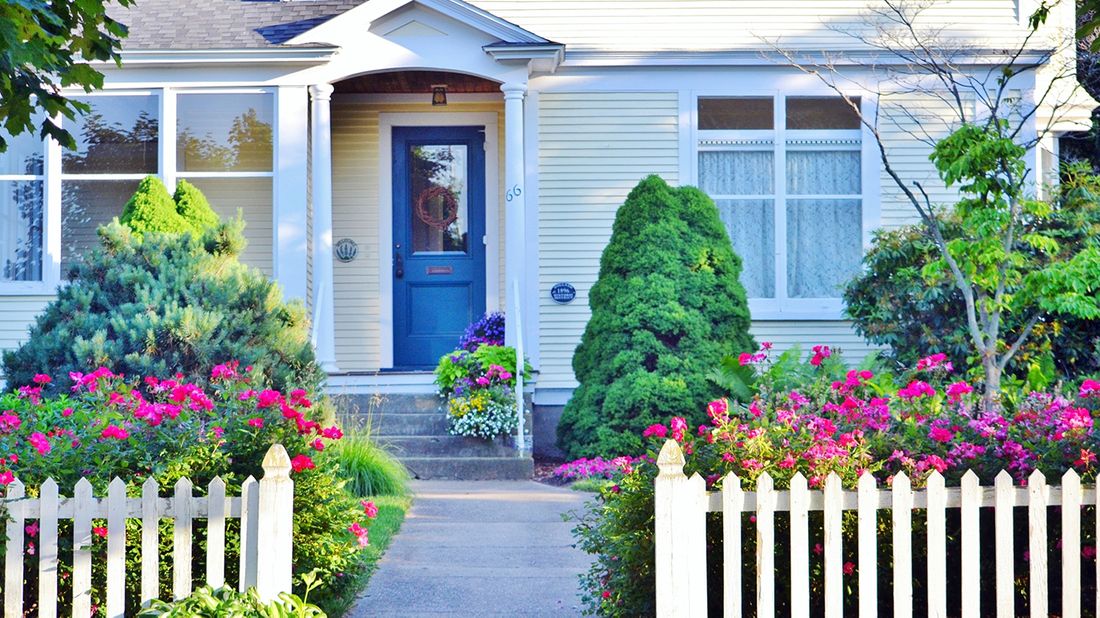Down Payment on a House

When it comes to adulting, you’re in the big leagues now. You’re officially looking to buy your own home.
As a first-time homebuyer, it’s natural to be wary of the process — and writing out that massive check for your down payment is scary enough to make your hand shake. So we’re demystifying the ins and outs of the down payment so you can tackle this major purchase with confidence.
What is a down payment?
How do down payments work?
When you’re buying a home, the down payment is simply the money that you pay toward the purchase upfront.
You’ll usually see the down payment referenced as a percentage of the sales price. For instance, a 20 percent down payment on a $300,000 home is equivalent to $60,000 down. If you are, like most people, paying less than 100 percent of the home's price out of your own pocket, you’ll have to borrow the balance of the purchase price from a lender in the form of a mortgage.
How much do you really need for a down payment?
Ideally, you’ll have at least a 20 percent down payment ready to go when you buy your home. With that level of equity, you present yourself as financially stable enough to be a serious buyer to both home sellers and mortgage lenders. If you put down less than 20 percent, your lender may require you to pay private mortgage insurance, also known as PMI, which would be tacked onto your monthly mortgage payment.
Related Article
Still, there are loan options available if you’re working with a smaller down payment. Each mortgage company has its own set of criteria when it comes to the size of your deposit, your credit history, your assets and more. Some types of mortgages, such as those backed by the Federal Housing Authority (FHA), will take smaller down payments, so be sure to shop around to find the best mortgage terms for which you qualify.
Do you have to make a down payment all at once?
Frequently, a down payment isn’t paid all at once. Instead, you’ll likely wind up paying it in two installments — first as an “earnest money” payment when you sign the purchase contract, and a final payment at the closing.
The amount that’s paid out upfront in earnest money is a detail you’ll specify in advance in the purchase contact. Buying an existing home? Expect to shell out 1 percent to 3 percent of the purchase price in earnest money. If, however, you’re having a home custom-built for you, your earnest money payment will likely be much higher — potentially up to 10 percent before the builder lifts a finger.
Where does your down payment go?
The earnest money doesn’t go into the pocket of the seller straightaway. Instead, you put that cash directly into escrow. An escrow company or officer is a neutral third party who holds onto the payments you make until the deal is finalized. Then, that entity distributes the money to the seller and to everyone else who’s owed a piece.
The rules regarding escrow accounts vary by state, and additional details may be spelled out in your purchase contract. Check with your agent to find out how and where your payments are being held.
What happens to your down payment if you decide not to buy?
Sometimes, even after you and the seller sign a contract, the deal falls apart before closing, and you’ve still got money on the line. Your ability to reclaim your earnest money and other payments depends on your local laws, your contract terms and the reason the sale died.
In most cases, a change of heart on your end means you’re going to lose your earnest money. But you may be able to get it back if:
-
The seller decides to take the home off the market.
-
You can’t get a mortgage that will allow you to buy the property.
-
A building inspection turns up a major issue you didn’t know about.
-
You change your mind about the sale within a pre-determined time period.
Your contract should spell out the exact scenarios in which you will — and won’t — be entitled to receive a refund if the sale falls apart. And your real estate agent and lender can offer additional insight into the real estate laws governing your area.
Can I change my down payment before closing?
Whether you’ve experienced a cash windfall or the closing process is taking long enough that you've been able to save more, most lenders will allow you to make a larger down payment. However, if you’re looking to make a smaller down payment, you’ll need to check with your real estate agent and your lender to see if they’re willing to accommodate your paying less money upfront.
Closing costs outside the down payment
If you’re saving to buy a home, keep this in mind: A down payment isn’t the only money you’ll need to pony up during the process.
Along the way, you may need to cover some upfront expenses for processing your mortgage application, hiring a home inspector and more. And, at closing time, you may need to cover several thousand dollars in closing costs and fees.
An experienced agent or an online calculator can provide you with an estimate of what those bills will total. So be sure you include that amount alongside your down payment in calculating your savings goal.








